The countries with nuclear weapons
Total global tally of nukes has dropped from 70,000 to around 14,000 in past 55 years
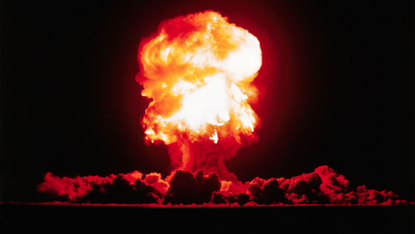
Fears of a nuclear conflict soared after Russia invaded Ukraine and Vladimir Putin put his nation’s nuclear arms on “special alert”.
At the start of the invasion, the BBC reported that the Russian president hinted at a nuclear attack, warning that “whoever tries to hinder us” in Ukraine would see consequences “you have never seen in your history”. He then upped the stakes further by ordering Russia’s military to put its deterrence forces, which include nuclear weapons, on “special alert”.
The UK’s Deputy Prime Minister Dominic Raab dismissed it as “rhetoric and brinkmanship” and others agreed that it was just part of Putin’s psychological warfare.
Subscribe to The Week
Escape your echo chamber. Get the facts behind the news, plus analysis from multiple perspectives.

Sign up for The Week's Free Newsletters
From our morning news briefing to a weekly Good News Newsletter, get the best of The Week delivered directly to your inbox.
From our morning news briefing to a weekly Good News Newsletter, get the best of The Week delivered directly to your inbox.
However, The Times’ Daniel Finkelstein questioned why strategists would expect Russia to be “reasonable” with his weapons of mass destruction when the invasion of Ukraine has been “to put it politely, unreasonable”.
It is time we “discuss our approach to weaponry that might kill millions, that could even make the Earth uninhabitable”, he wrote.
The i news site’s special correspondent Patrick Cockburn said the risk of a nuclear war is “becoming greater than it was in the first Cold War because Russia under President Vladimir Putin is much weaker – and therefore more likely to use nuclear weapons – than the Soviet Union at the height of its power”.
Cockburn forecast that “as the war in Ukraine increasingly sucks in other powers and Putin becomes more desperate, the likelihood of a nuclear exchange will increase”.
Here are the countries that are known – and those that are rumoured - to have nuclear weapons.
Nuclear possessor states
“At the dawn of the nuclear age, the US hoped to maintain a monopoly on its new weapon,” according to the Arms Control Association (ACA). “But the secrets and the technology for building the atomic bomb soon spread.”
A total of at least 31 countries have “flirted with nuclear weapons at one time or another”, said The Economist.
Nine nations are currently known to have nuclear arms.
Latest data from the Arms Control Association suggests that more than 90% of the world’s total nuclear warheads belong to Russia and the US. Putin is believed to be sitting on “the world’s biggest stockpile of nuclear warheads”, with an estimated total of 6,257, “followed closely” by the US, at 5,500, said CNN.
China, France and the UK “round out the top five”, the broadcaster continued, with 350, 290 and 225 respectively.
The UN Treaty on the Non-Proliferation of Nuclear Weapons (NPT), which came into force in 1970, classifies these five countries as nuclear weapon states (NWS). The treaty committed the UN’s 191 member states to preventing the further spread of nuclear weapons, with a goal of achieving total disarmament.
The overall number of nuclear weapons in the world has decreased from 70,000 in 1968 to around 14,000, according to the BBC.
However, three states who did not sign the historic treaty are known to possess nuclear arsenals. The Arms Control Association estimates that Pakistan has 165 nuclear warheads and that India has 156, while Israel is thought to have 90.
North Korea is also believed to have between 40 and 50 warheads, “which it sees as insurance against a pre-emptive attack by the US”, wrote the BBC’s security correspondent Frank Gardner. The hermit state has conducted a series of nuclear tests since withdrawing from the NPT in 2003.
The country’s state media agency KCNA reported that a hypersonic missile had successfully been tested at the start of 2022, news that “will alarm its neighbours, notably Japan and South Korea”, Gardner continued. This type of weapon is “unpredictable” and “hard to intercept”, and “they also leave nations guessing whether they are carrying a conventional high explosive warhead or a nuclear one”.
Iran, Iraq and Libya have also breached the treaty’s terms by pursuing nuclear activities, “and Syria is suspected of having done the same”, said the Arms Control Association.
The Economist cautioned that while the nuclear ambitions of “geopolitical minnows” such as Libya and Syria may be quashed, “in the next decade the threat is likely to include economic and diplomatic heavyweights whose ambitions would be harder to restrain”.
The Arms Control Association struck a more positive note, noting that “dire decades-old forecasts that the world would soon be home to dozens of nuclear-armed have not come to pass”.
Create an account with the same email registered to your subscription to unlock access.
Sign up for Today's Best Articles in your inbox
A free daily email with the biggest news stories of the day – and the best features from TheWeek.com
Julia O'Driscoll is the engagement editor. She covers UK and world news, as well as writing lifestyle and travel features. She regularly appears on “The Week Unwrapped” podcast, and hosted The Week's short-form documentary podcast, “The Overview”. Julia was previously the content and social media editor at sustainability consultancy Eco-Age, where she interviewed prominent voices in sustainable fashion and climate movements. She has a master's in liberal arts from Bristol University, and spent a year studying at Charles University in Prague.
-
 6 stylish homes in Portland, Oregon
6 stylish homes in Portland, OregonFeature Featuring a wall of windows in Collins View and a historic ballroom in Portland Heights
By The Week US Published
-
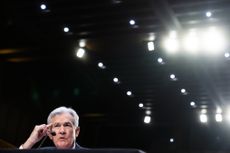 What's next for US interest rates?
What's next for US interest rates?The Explainer Stubborn inflation forestalls anticipated rate cuts
By Becca Stanek, The Week US Published
-
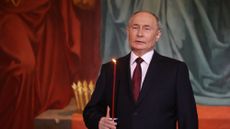 Russia rattles nuclear saber, orders tactical nuke drills
Russia rattles nuclear saber, orders tactical nuke drillsSpeed Read President Vladimir Putin has ordered Russian military to hold nuclear weapons drills in response to Western "threats"
By Peter Weber, The Week US Published
-
 Nuclear near-misses
Nuclear near-missesThe Explainer From technical glitches to fateful split-second decisions, the world has come to the brink of nuclear war more times than you might think
By Rebecca Messina, The Week UK Published
-
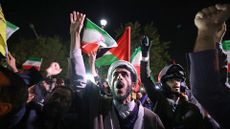 Will Iran's attack on Israel backfire?
Will Iran's attack on Israel backfire?Today's Big Question The unprecedented targeting of Israel could be a 'godsend' for Netanyahu as the limits of Tehran's military power are exposed
By Elliott Goat, The Week UK Published
-
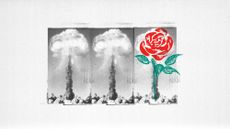 Labour and nuclear weapons: a turbulent ideological history
Labour and nuclear weapons: a turbulent ideological historyThe Explainer From the 1940s to Keir Starmer, the party leadership has zigzagged in and out of love with the bomb
By Chas Newkey-Burden, The Week UK Published
-
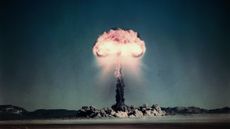 How likely is an accidental nuclear incident?
How likely is an accidental nuclear incident?The Explainer Artificial intelligence, secret enemy tests or false alarms could trigger inadvertent launch or detonation
By Chas Newkey-Burden, The Week UK Published
-
 What will Russia look like after Putin?
What will Russia look like after Putin?Today's Big Question There are no guarantees of stability for the West if or when the president departs
By Chas Newkey-Burden Published
-
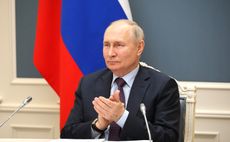 Russia moves tactical nuclear weapons into Belarus blaming ‘Nato aggression’
Russia moves tactical nuclear weapons into Belarus blaming ‘Nato aggression’Speed Read Move has been met with widespread condemnation from the West
By Chas Newkey-Burden Published
-
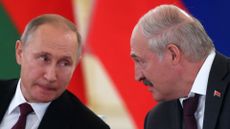 Why is Putin moving nuclear weapons to Belarus?
Why is Putin moving nuclear weapons to Belarus?Today's Big Question Announcement labelled a ‘bluff’ but escalation could have serious consequences for Russia, its allies and Nato
By The Week Staff Published
-
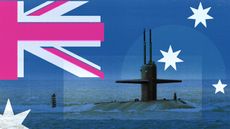 Aukus: does pact herald an Indo-Pacific Nato?
Aukus: does pact herald an Indo-Pacific Nato?Today's Big Question Nuclear submarine deal next phase of landmark military and security alliance between UK, US and Australia
By The Week Staff Published